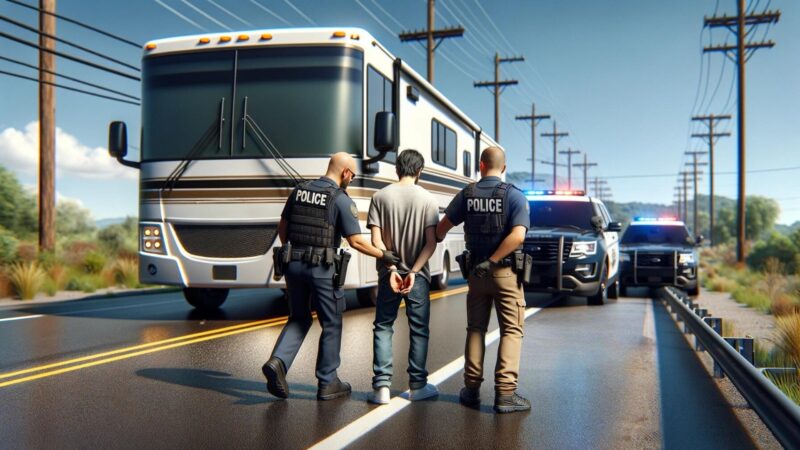Table of Contents Show
Being on the right side of the law is always a good idea. However, whether intentional or not, RVers often break several laws.
While not all of these will land you behind bars, you can find yourself in hot water with law enforcement for violating them. As a result, it’s best to know and follow the laws of the land.
Today, we’re sharing ten laws RVers break every day so you can avoid a sticky legal situation during your adventures.
Let’s go!
Are RVers Law Breakers?
RVers break numerous laws regularly. Some do so intentionally, while others are unaware of the legal requirements. Whether you know specific laws or not is no excuse. Law enforcement can issue citations, fines, and even tow your RV in certain situations.
If you plan to cross state borders during your travels, you should know any laws that might change when you do.
Some states have reputations for being more strict, especially regarding speeding and other traffic violations. Plan and research any unique laws you must follow in specific states or areas.

10 Laws RVers Break Every Day
The RV community is full of kind, caring, and generous people. However, it’s not uncommon for them to intentionally or unintentionally break the law.
Here are some of the most common laws you might be breaking and not even know.
Triple Towing
Triple towing is an option for those RVers who don’t have a toy hauler but have toys they want to bring with them. It’s legal in more than half the states in the United States, but a large portion of the country prohibits it.
In general, the states that prohibit it are along the East Coast. This is mainly because many of these states do not have the infrastructure to make triple towing safe. When triple towing, you break the law the second you cross the border into one of these states.
You’re likelier to see triple towing in Western states, which are typically more open and spacious. However, it’s your responsibility to ensure you know the rules of the road wherever you travel.
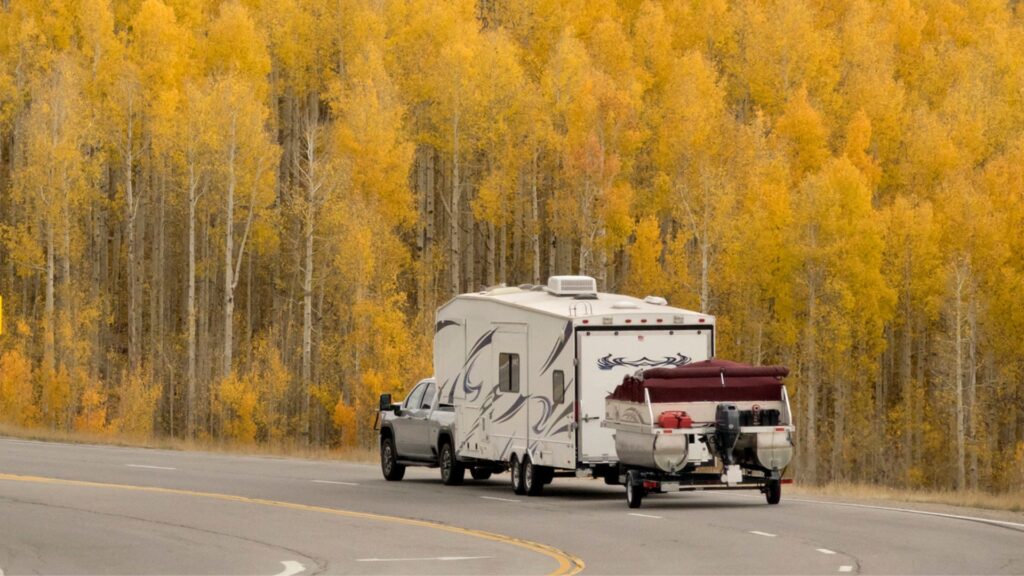
Residential Parking
Whether you like it or not, you can’t just park your RV anywhere you want. Just because you own the land doesn’t always mean you can store it there. Many communities and HOAs have strict rules and regulations regarding parking for RVs.
Some will allow them for a single night, but others aren’t so generous. As a result, you must do some research ahead of time, especially if you’re purchasing your first rig. Storing an RV can be costly, and you don’t want surprises once you bring your rig home.
Overnight Parking
Another common law that RVers break has to do with parking overnight. Many RVers will park in lots at large retail establishments, restaurants, or community services like hospitals. While these spots can be convenient and help break up a long travel day, they’re becoming problematic.
Unfortunately, many cities and local municipalities are creating laws against overnight parking. No matter how hospitable an establishment wants to be, they must follow these laws.
If you illegally park overnight in an area, don’t be surprised if you get a knock on your door in the middle of the night. Management or law enforcement will likely ask you to move on your way.
Pro Tip: Check out these Walmart Alternatives for Free Overnight RV Parking!
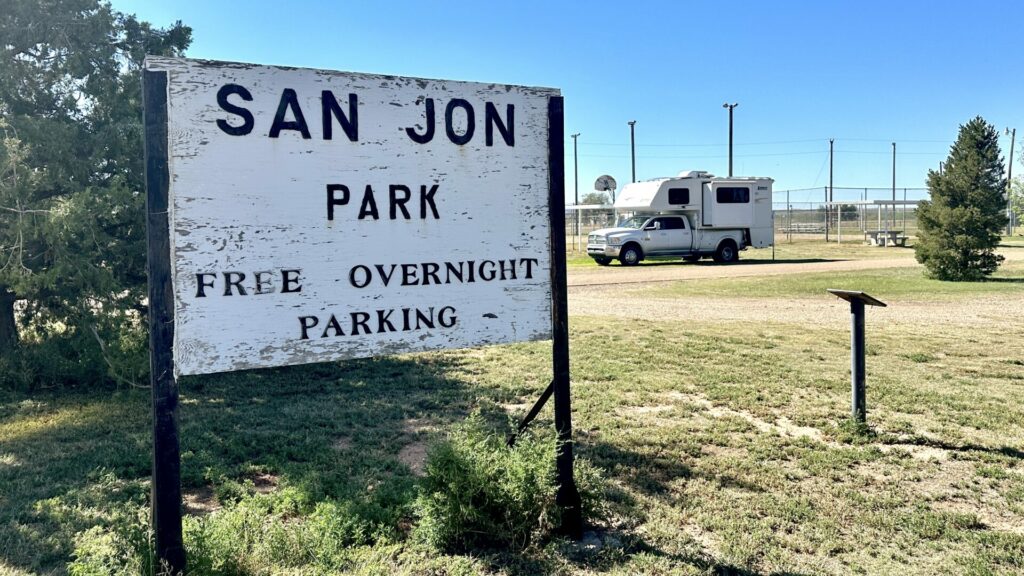
Dogs in National and State Parks
We love bringing our dobie-mix, Carmen, with us during our national and state parks adventures. However, rules regarding where she can come with us vary from one location to the next. Being a responsible pet owner means cleaning up after them and staying informed about the pet policies while traveling.
Some parks allow her to come with us on hikes and just about anywhere that’s not inside a building. However, most national parks have stringent rules about hiking with pets. This is their way of helping preserve the natural environment for the wildlife living in the park.
Pro Tip: If you love traveling with your dog, you can Take Fido to These Dog-Friendly National Parks!
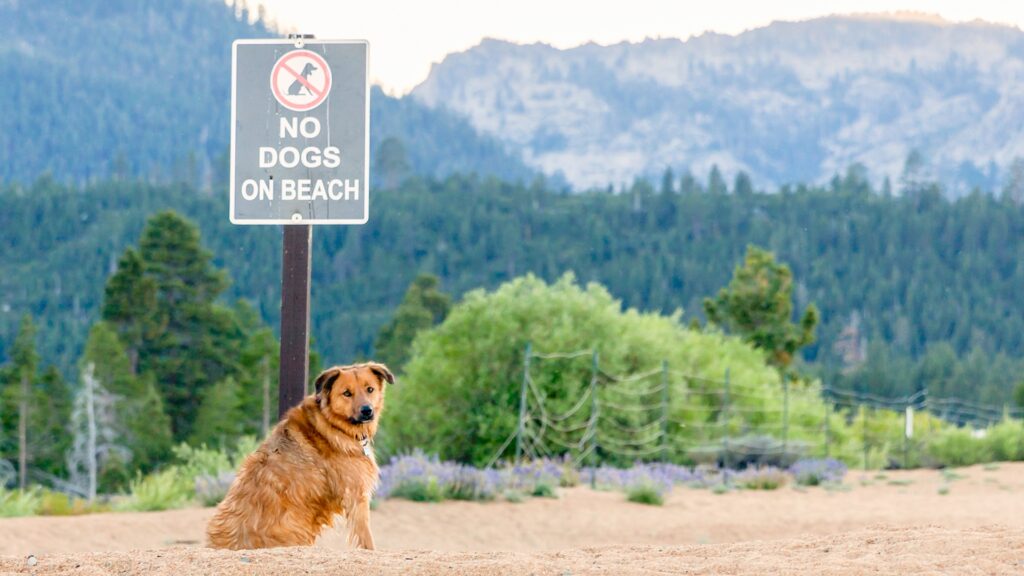
Fire Arms and State Lines
RVers should do everything possible to keep themselves safe while traveling. For some, this means carrying a firearm with them.
However, like the many other laws on our list, the regulations regarding carrying weapons vary considerably from one state to the next.
Before hitting the road, please confirm where and how to store whatever protection device you choose. If not, you could be in a sticky situation in some states. Violating weapons laws can land you in hot water with law enforcement in a hurry. You can start by reading this article about crossing state lines with a firearm.
Driving with Flashers
The torrential downpours of rain were one of the things that surprised us when we first moved to the Sunshine State of Florida. There were numerous times when we found ourselves on the interstate or highway during these almost daily storms.
Unfortunately, some drivers would make the mistake of turning on their flashers while driving.
Many of these drivers are unaware that driving unnecessarily with their flashers on is illegal. They typically do so to make themselves more visible to others.
However, their flashers usually do the exact opposite and can confuse others. Drivers won’t be able to tell if you’re signaling to change lanes or make another maneuver.
If you think it’s raining so hard that you need to turn on your flashers, you should find a safe place to pull off to the side of the road.
Pro Tip: Be sure to read Safety Tips for Driving in the Rain!
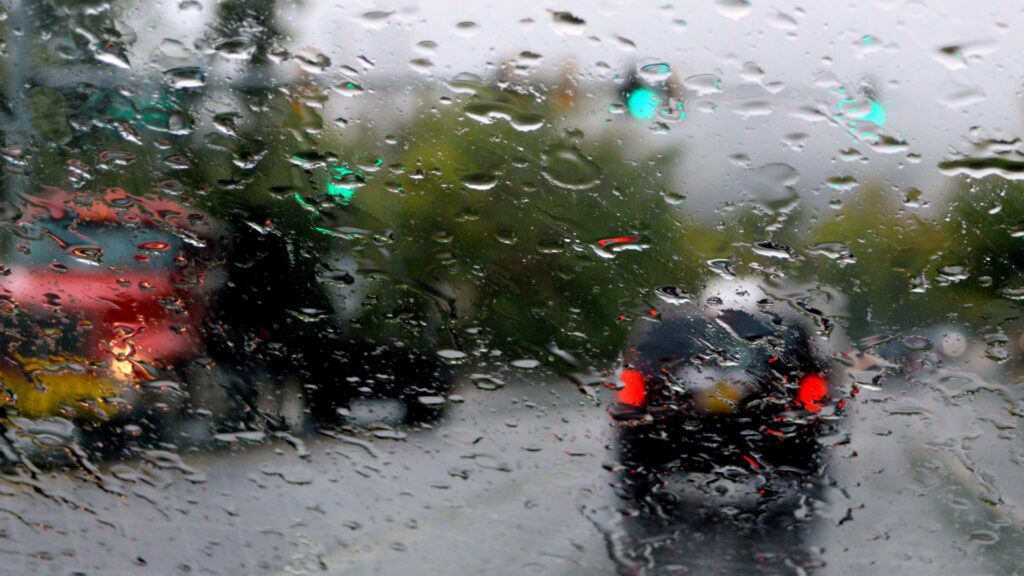
Seat Belts
One law we often see RVers break involves wearing seat belts. Being in a big motorhome or larger vehicle doesn’t exempt you from wearing a seat belt.
Sadly, accidents involving recreational vehicles can be just as dangerous and deadly as passenger vehicles.
You should remain seated and wear your seat belt when your RV is in motion. This will help keep you and your passengers safe during unexpected situations.
Whether it’s a blown tire or other dangerous situation, the open road can be incredibly unpredictable and dangerous.
Crossing National Borders
When we decided to head to Alaska, we knew that meant hauling our truck camper through Canada. Crossing a national border can be challenging and isn’t something RVers should take lightly. If you do, you could be over your head in legal issues.
While crossing a national border isn’t technically illegal, there’s a correct and proper way to do it. Some include firearms, fruits and vegetables, and specific amounts of alcohol and copyrighted materials.
Officials are constantly watching for those individuals trying to sneak these items in and out of the country.
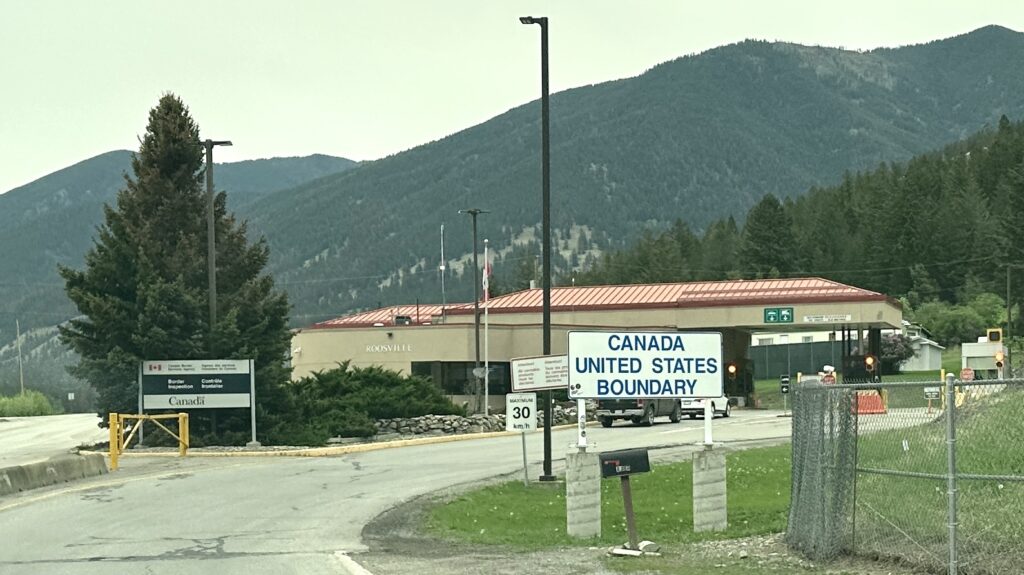
The 183-Day Law
While some of the laws on our list may be common sense, many RVers are unaware of the 183-day law. Under this law, individuals who reside in a state for 183 days or more are considered residents for tax purposes.
Even if you’re a resident of a state with no income tax, spending 183 days or more in a state with one will require you to pay them taxes.
This typically is fine for most RVers. However, if you’re a full-timer and decide to stay put for a portion of the year, it can become an issue.
Trust us, you want to avoid playing games with the IRS and other tax agencies. They’re ruthless and will come after what you owe them.
Tunnels and Propane
Some major highways, especially along the East Coast, require drivers to navigate tunnels. Most RVs have propane systems to run refrigerators, control heat, and use other propane appliances.
However, most tunnels require drivers to turn off propane tanks before entering. In addition, some prohibit propane altogether.
Check your route and know the applicable laws for each specific tunnel. You may need to find an alternate route to avoid legal troubles. Law enforcement and other authorities look for violators, and fines can be costly.
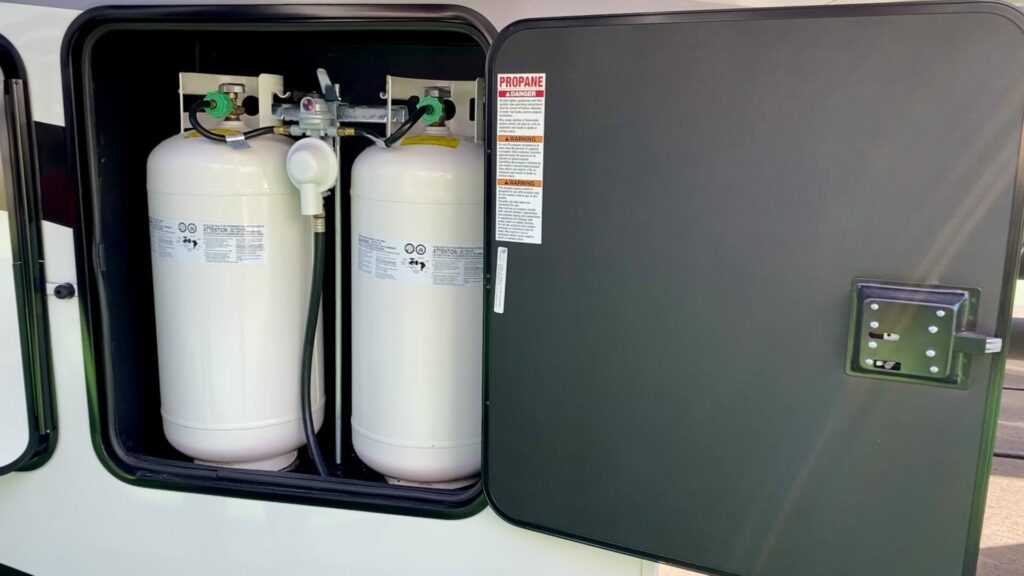
Ignoring Length Laws
The final law on our list that RVers break daily is about RVs’ length. Some roads and areas have laws prohibiting vehicles over a certain length. Like many other laws, these are put in place to help protect you, your RV, and others on the road. Ignoring length laws can put you in a hazardous situation.
You must check your route and be aware of any potential length laws. This is especially true in mountainous areas with roads with switchbacks and other tight turns.
Stay on the Right Side of the Law While RVing
Whether you’re a rule breaker or not, following the laws while RVing reduces the odds of a severe accident. It will take some effort to be aware of the requirements, but it’ll save you from a more serious legal situation.
The last thing you want is to get tossed in the slammer. Not only will this ruin your day, but it will also cause you to cancel your future travel plans.




